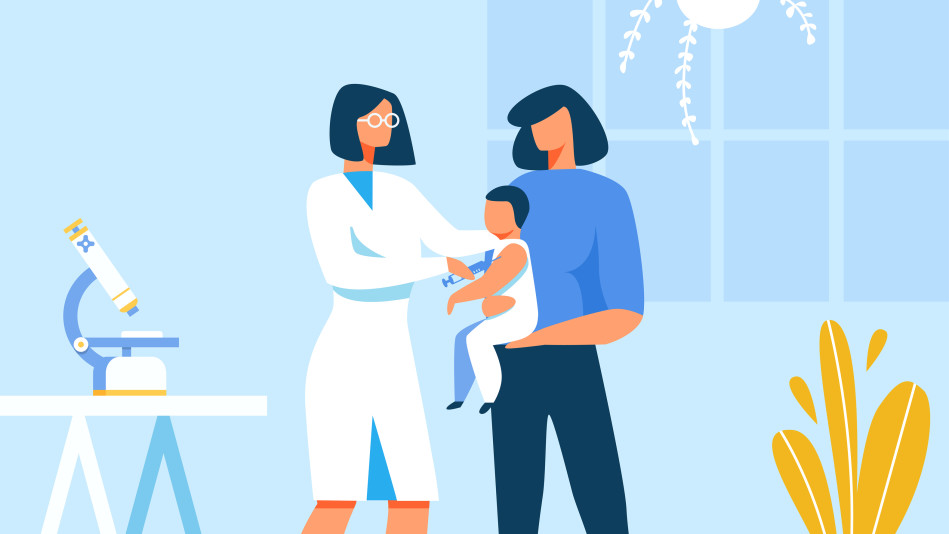These Moms Were Against Vaccines—Until They Had a Change of Heart
Three women talk about how they came to see lifesaving immunizations in a new light.

Photo: Unitone Vector/Getty Images
Most people get vaccinated against diseases like measles, mumps, pertussis and influenza because they fear contracting a serious illness and they trust the wisdom and competence of the medical community. But some believe the real threats are the vaccines themselves—and on this point, they don't trust the experts at all. We talked to three women who were once opposed to getting immunizations for themselves and their children but eventually changed their minds. They shared their stories in an effort to create a more fruitful national dialogue about the importance of immunizations.
Katie Glisson, 28
Jacksonville, Florida | Exposure scientist and new mother
While earning my Bachelor's degree in environmental and public health, I worked at a wellness center where some practitioners would say negative things about "modern medicine" and that vaccines were unnecessary if you ate well, exercised and took great care of yourself. One of them referred me to a website with a lot of anti-vaccine information. After reading it and articles it linked to, I, too, began to believe the conspiracy theories that said the shots could make you sick, drugmakers were getting rich off "worthless" protection from "minor diseases," and pro-vaccine research was rigged by Big Pharma.
In graduate school, I took classes in topics like toxicology and risk assessment, and it became clear to me that I'd been looking at vaccinations from a purely emotional point of view, not a critical one. The clincher was working on my thesis. The process showed me what it takes to do a rigorous study and get it published in a peer-reviewed journal: Experts in the field carefully evaluate every aspect of your research and methodology and ensure that the information is valid and useful. It made me realize how wrong I was to have thought the peer-reviewed scholarly articles showing that vaccines are effective and safe were all "rigged." It also taught me how flawed the anti-vaccination "research" was—unsupported facts, unfounded conclusions, stats without objective sources, biased anecdotes.
Today I'm fully up-to-date on all my vaccinations, and I'm following the CDC recommendations for vaccinating my 6-month-old daughter. When I think about how I used to go around saying that vaccines don't matter, I feel like I let my friends and family down. But I remind myself that at the time, I believed I was saving them from danger.
I keep that in mind when talking to people who are anti-vaccine. I try to calmly share peer-reviewed, unbiased studies, and I point out when anti-scientific websites have conflicts of interest. (Many of the people behind these sites are making a profit from selling products such as supplements or "natural remedies" like oils or salves.) Just the other day a friend sent me a long article about why vaccines are dangerous. While being respectful toward her, I refuted the article line by line, providing solid scientific sources—like data from the World Health Organization—for each point. Even if my email doesn't convince her, I hope I planted a seed of doubt.
Read the full story here: These Moms Were Against Vaccines—Until They Had a Change of Heart



